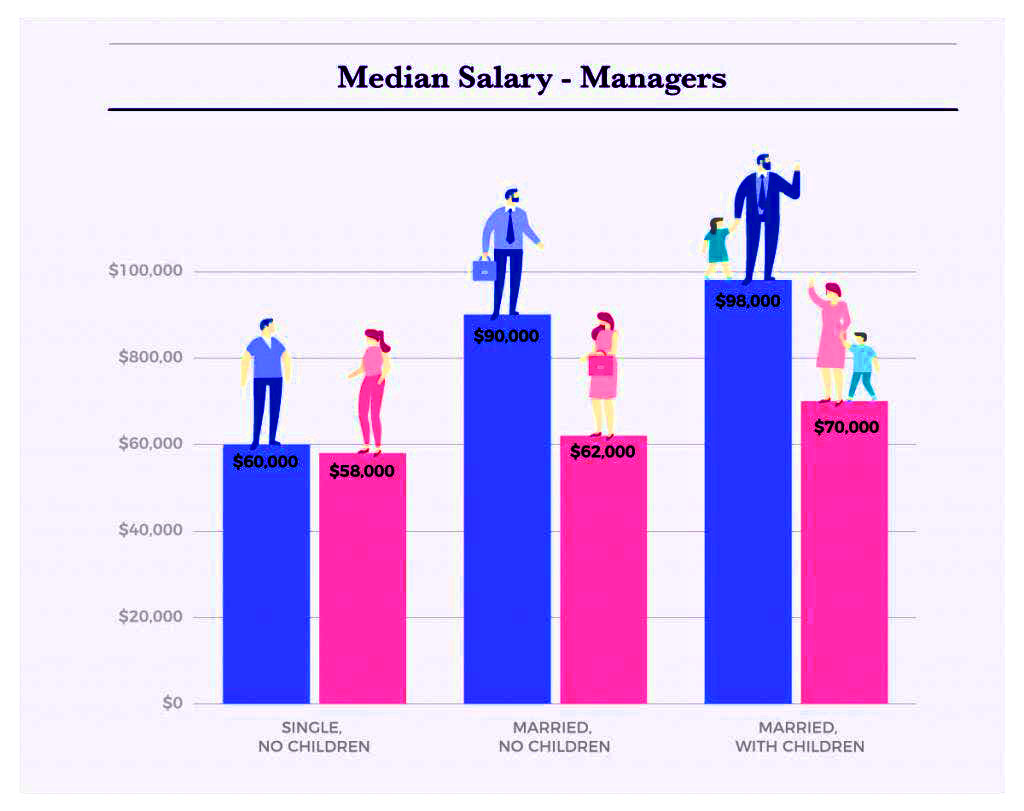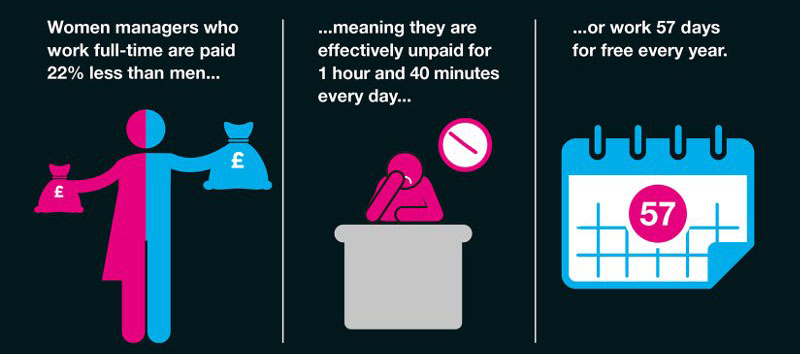In the corporate sphere, there persists an abomination namely gender inequality despite a momentum for equality. Historically, C-suite roles have been largely occupied by men, which highlights a prominent absence of women in upper management of corporate leadership. This underrepresentation not only emphasizes the wider societal challenges in attaining gender equality but also highlights the universal barriers obstructing women's advancement in professional settings.
Regardless of advancements in workplace inclusion efforts, women continue to grapple with hurdles in accessing top-tier leadership positions. In order to address this discrepancy, professional doctorate programs have emerged as transformative tools for women who aim to break through the glass ceiling. By offering advanced education and research opportunities tailored specifically for experienced professionals, such as the Professional Doctorate in Business Management these programs equip women with the essential skills, expertise, and credentials to prosper in C-suite roles. These doctorate in business administration programs involve rigorous academic training and specialized coursework, that empowers women to challenge existing gender norms and carve out their paths to executive leadership.
Furthermore, professional doctorate programs provide a benchmark for women to research on topics that are relevant to their professional interests, qualifying them to contribute valuable insights to their industries and advocate for change. Programs such as Professional Doctorate in Business Management enable women to gain a deeper understanding of complex business challenges and develop innovative solutions that can drive organizational growth and sustainability.
Additionally, these programs also offer networking opportunities that facilitate connections with peers, faculty, and industry professionals, expanding women's professional networks and support systems. Through collaboration and knowledge-sharing, women in professional doctorate programs can amplify their impact and pave the way for greater gender diversity and inclusion in C-suite roles.

The Gender Gap in Corporate Leadership:
- Male Dominance: Across the epochs, men have overpoweringly held influence in C-suite positions, by attaining essential roles such as CEO, CFO, COO, and CMO. This long-established trend has resulted in a stark underrepresentation of women at the highest strata of corporate power. The supremacy of men in these leadership roles mirrors ingrained societal norms and systemic biases that have factually favored male candidates for executive positions. Despite increasing recognition of the value of gender diversity in corporate leadership, women continue to encounter barriers to entry and advancement within C-suite ranks, prolonging the cycle of male dominance in corporate governance structures.
- Glass Ceiling: The notion of the "glass ceiling" has gathered extensive acknowledgment as a predominant obstacle to women's career advancement in the corporate world. It represents the unseen but challenging barriers that hinder women's ascension to uppermost leadership positions. The glass ceiling represents an intricate interplay of operational, cultural, and organized factors that hinder women's advancement. In spite of holding essential qualifications, skills, and experience, women often find themselves hindered in their vocational progression, facing invisible barriers that limit their ascendant mobility within organizations. This circumstance not only suppresses an individual’s career aspirations but also disseminates gender inequality within corporate hierarchies, reinforcing the notion that certain leadership roles are reserved primarily for men.
 Pay Gap: Gender inequalities in salary continue to represent the persistent exhibition of gender inequality within the workplace. In spite of governmental efforts and enhanced awareness, women continue to earn less than their male counterparts in similar positions, aggravating inequities in earning potential and financial security. The pay gap echoes systemic partialities and discriminatory practices that underestimate a woman’s contributions and expertise in the workforce. Factors such as professional exclusion, gender-based discrimination, and inequalities in negotiation and promotion opportunities contribute to the persistence of the pay gap, perpetuating economic inequalities between men and women. Addressing the pay gap is essential for achieving gender equality in the workplace and ensuring that women receive fair and equitable compensation for their labor and expertise.
Pay Gap: Gender inequalities in salary continue to represent the persistent exhibition of gender inequality within the workplace. In spite of governmental efforts and enhanced awareness, women continue to earn less than their male counterparts in similar positions, aggravating inequities in earning potential and financial security. The pay gap echoes systemic partialities and discriminatory practices that underestimate a woman’s contributions and expertise in the workforce. Factors such as professional exclusion, gender-based discrimination, and inequalities in negotiation and promotion opportunities contribute to the persistence of the pay gap, perpetuating economic inequalities between men and women. Addressing the pay gap is essential for achieving gender equality in the workplace and ensuring that women receive fair and equitable compensation for their labor and expertise.
Why Having Women in C-Suite Roles Matters:
- Diverse Perspectives: Women bring an abundance of varied viewpoints and experiences in the decision-making processes within organizations. These diverse perspectives arise from diverse personal and professional backgrounds, allowing women to provide fresh visions and innovative solutions to intricate challenges. By making use of these diverse perspectives, organizations can tap into a rich reservoir of creativity and ingenuity, fostering a culture of innovation that drives continuous improvement and competitive advantage.
- Better Decision Making: Research indicates that gender-diverse leadership teams tend to outperform homogenous teams in decision-making processes. Drawing from a broader range of perspectives and cognitive styles, gender-diverse teams are better equipped to assess risks, identify opportunities, and devise effective strategies for addressing business challenges. As a result, companies with inclusive leadership often tend to attain superior business outcomes and financial performance, underlining the benefits of diversity in driving organizational success.
- Enhanced Corporate Culture: Women in leadership roles play the essential role in influencing the corporate culture of organizations. By advocating diversity, equity, and inclusion initiatives, women in leadership create inclusive and supportive workplace environments where all employees feel appreciated and motivated to contribute their best work. This inclusive culture raises collaboration, creativity, and employee engagement, driving productivity and fostering a sense of belonging among team members.
- Role Modeling and Inspiration: Women in leadership positions serve as powerful role models for aspiring professionals, especially for women who are keen on advancing their careers trajectory in the male-dominated industries or leadership roles. When they break through obstacles and achieve success in their respective fields, female leaders inspire future generations of women to follow their ambitions and aspirations confidently. Their achievements serve as a testimony to the limitless potential of women in leadership, motivating others to strive for excellence and overcome obstacles on their path to success.
- Market Relevance: Women embody a significant portion of consumer demographics, which influences buying decisions across a wide range of industries. Having female leaders in C-suite roles enables companies to better understand and connect with their target audiences, leveraging insights into consumer preferences, behaviors, and trends. By integrating varied perspectives into strategic decision-making processes, companies can develop products, services, and marketing campaigns that resonate with diverse consumer segments, driving growth and market relevance in an increasingly competitive business landscape.
Why Women Should Upgrade Themselves with Executive Education:
- Skills Enhancement: Executive education programs play a vital role in augmenting women’s leadership acumen by providing tailored curriculum that focuses on enhancing essential capabilities required for success in senior management positions. These executive educations provide specialized development in areas such as tactical thinking, effective communication, and strategic decision-making, vesting women with the capability to navigate intricate business challenges with confidence and ability. Women acquire practical skills and strategies that can be immediately applied in their professional roles, strengthening their leadership capabilities and positioning them for career advancement.
- Networking Opportunities: Executive education programs like a professional Doctorate in Business Management offer vital networking opportunities that allow women to increase their professional connections and build equally beneficial relationships within their industries. With the help of these interactions with peers, faculty members, industry experts, and guest speakers, women can create meaningful connections, gain understandings about industry trends, and exchange ideas with like-minded professionals. These networking opportunities provide a platform for women to seek mentorship, advice, and support from experienced leaders, as well as explore potential collaborations and career opportunities. By cultivating a robust professional network, women can enhance their visibility, credibility, and influence in their respective fields, paving the way for long-term career success.
- Career Advancement: Advancement of professional skills through executive education can meaningfully improve women's career prospects and create pathways to advancement, including coveted C-suite roles. By investing in in professional doctorate programs that aid in continuous learning and professional development, women establish their commitment to personal growth and excellence, positioning themselves as top contenders for leadership positions within their organizations. Executive education equips women with the latest industry knowledge, best practices, and leadership insights, enhancing their credibility and effectiveness as strategic leaders. Armed with enhanced skills and qualifications, women can seize new opportunities for career advancement, expand their professional horizons, and achieve their full potential in the corporate world.
Introducing Professional Doctorate Programs in Business Management:
A Professional Doctorate in Business Management program is an advanced degree that offer executive education crafted specially for experienced professionals, by blending rigorous academic coursework with real-world application to augment leadership skills and career prospects. This doctorate degree in business management is curated to accommodate demanding schedules of working professionals by providing flexible learning formats, including online courses and weekend residencies. Professionals who opt for this degree course engage in leading-edge research relevant to their industries, which in turn allows them to gain insights to strategize innovation and tactical decision-making. A Professional Doctorate in Business Management program even provide networking opportunities with peers and industry experts foster collaboration and professional growth. Ultimately, these programs empower participants to become visionary leaders, driving positive organizational change in today's competitive business landscape.
How a Professional Doctorate Program Helps Women in C-Suite Roles:
- Advanced Leadership Training: A Professional Doctorate in Business Management program provide women with specialized training in progressive leadership and management skills which is essential for success in C-suite positions. With rigorous coursework, practical learning opportunities, and mentorship, women can enhance their strategic thinking, decision-making, and communication abilities crucial to steer through the complexities of executive leadership roles effectively. A Professional Doctorate in Business Management program equip women with the confidence, competence, and resilience needed to tackle challenges, drive organizational change, and inspire high-performance teams in dynamic and competitive business environments.
- Research Opportunities: A Professional Doctorate in Business Management program offer women the opportunity to delve into topics relevant to their professional interests and expertise. A doctorate degree in business management allows them to conduct original research which enables them to contribute valuable insights, innovations, and best practices to their industries, addressing pressing challenges and advancing knowledge within their fields. A doctorate in business management degree fosters critical thinking, problem-solving, and intellectual curiosity, empowering women to make meaningful contributions to their organizations and broader society through evidence-based decision-making and thought leadership.
- Credential Enhancement: A Professional Doctorate in Business Management program serves as a powerful credential that enhances women's credibility and distinguishes them as experts in their fields. By earning a doctorate degree, women demonstrate their commitment to academic excellence, professional growth, and continuous learning, positioning themselves as thought leaders and subject matter experts within their industries. The prestige and recognition associated with a professional doctorate bolster women's qualifications and credibility, strengthening their candidature for C-suite roles and leadership opportunities within organizations.
- Organizational Impact: A Professional Doctorate in Business Management program empower women to make a substantial influence within their organizations by implementing their knowledge and advanced strategies gained through their doctorate degree. Fortified with a thorough comprehension of business dynamics and cutting-edge research insights, women in professional doctorate in business management programs are competent enough to bring forth organizational transformation, improve performance, and seize new growth opportunities. By implementing evidence-based practices and leading strategic initiatives, these women contribute to the development of agile, forward-thinking organizations that are better positioned to adapt to evolving market trends and industry disruptions. Moreover, with the help of a Professional Doctorate in Business Management program that enhance leadership skills they gain confidence to foster a culture of excellence, motivating teams to achieve shared goals and driving sustained success for the organization as a whole.
Conclusion:
The inclusion of women in C-suite roles represents more than just a pursuit of gender equality as it is a strategic necessity for organizations navigating today's intricate business environment. By championing diversity and cultivating inclusive leadership approaches, companies can unleash the complete capabilities of their workforce, propelling sustainable growth and fostering innovation. Moreover, integrating professionals with a professional doctorate in business management further amplifies this imperative and makes them competent enough to lead the way in creating dynamic and adaptive business cultures fit for the challenges of the modern world.
Do you want to learn more about how professional doctorate in business management program can empower women in leadership roles? Visit our website ebc.ac to explore our Professional Doctorate in Business Management program today and unlock new opportunities for career advancement and make a meaningful impact in your industry.
Written By : Rajosree Sur

